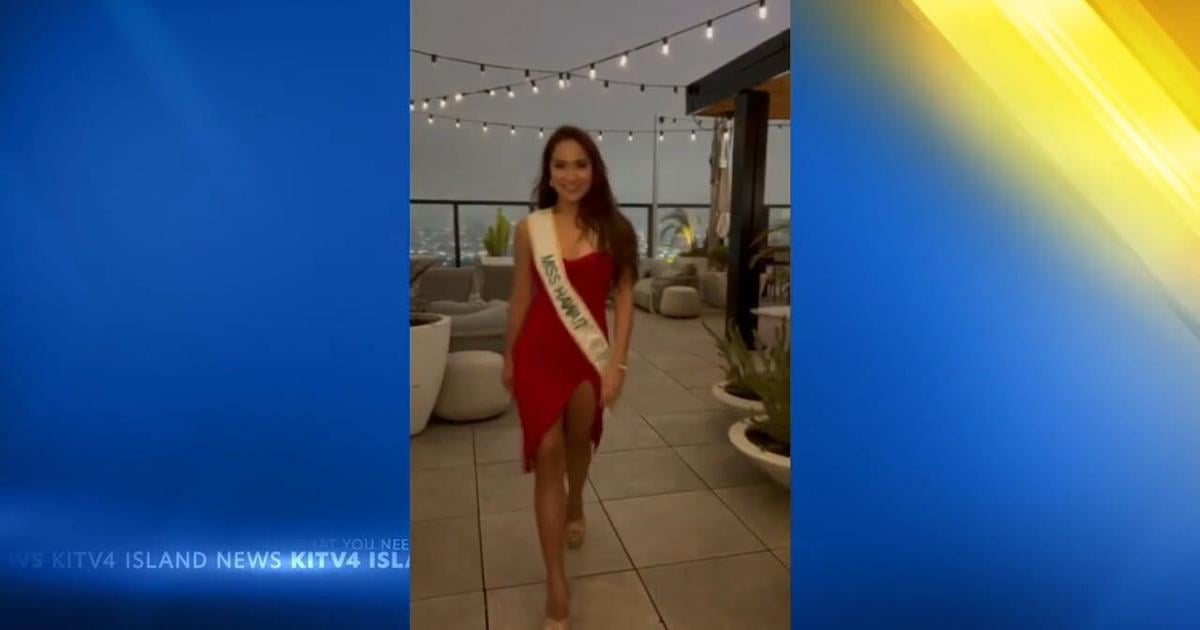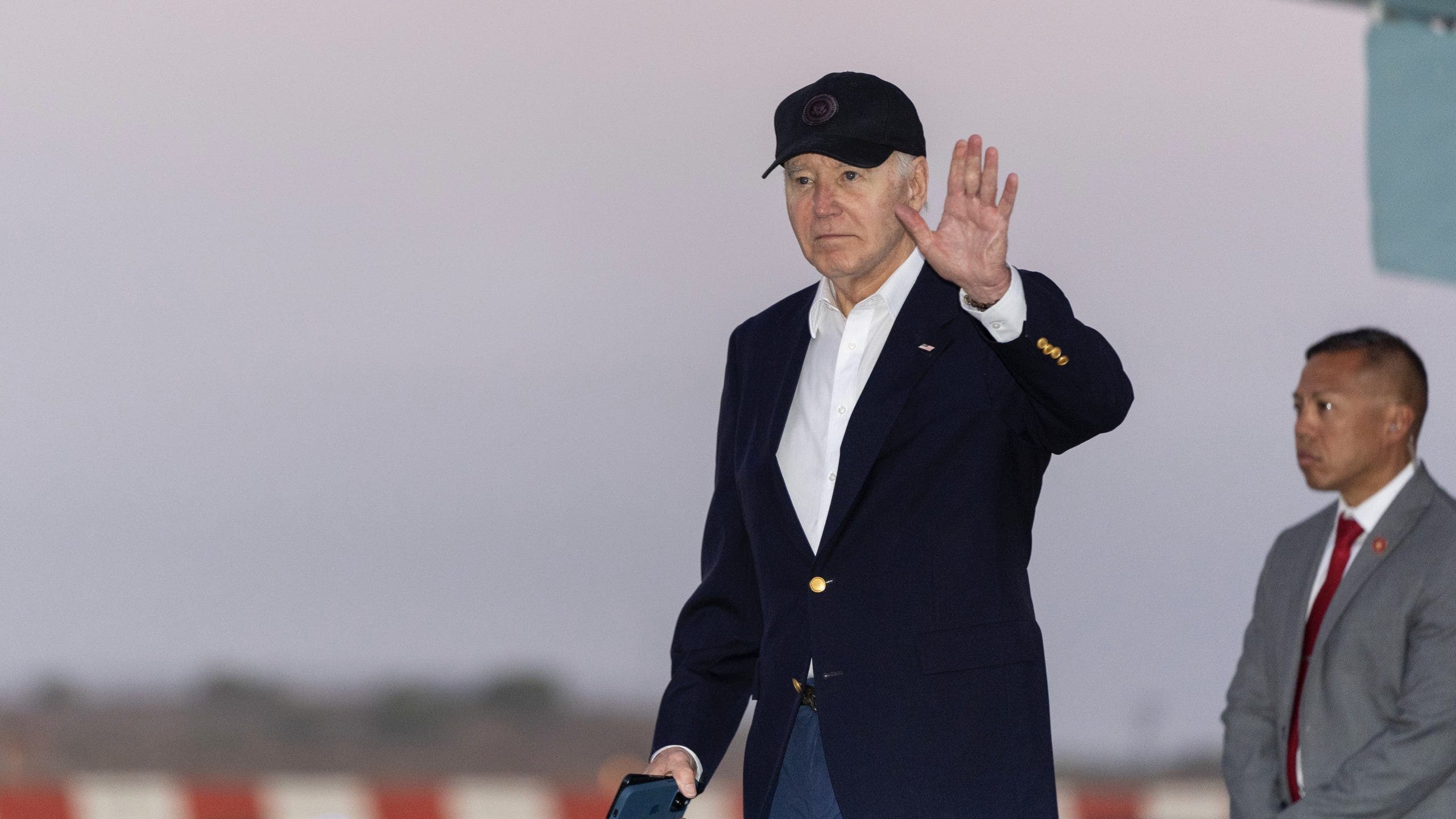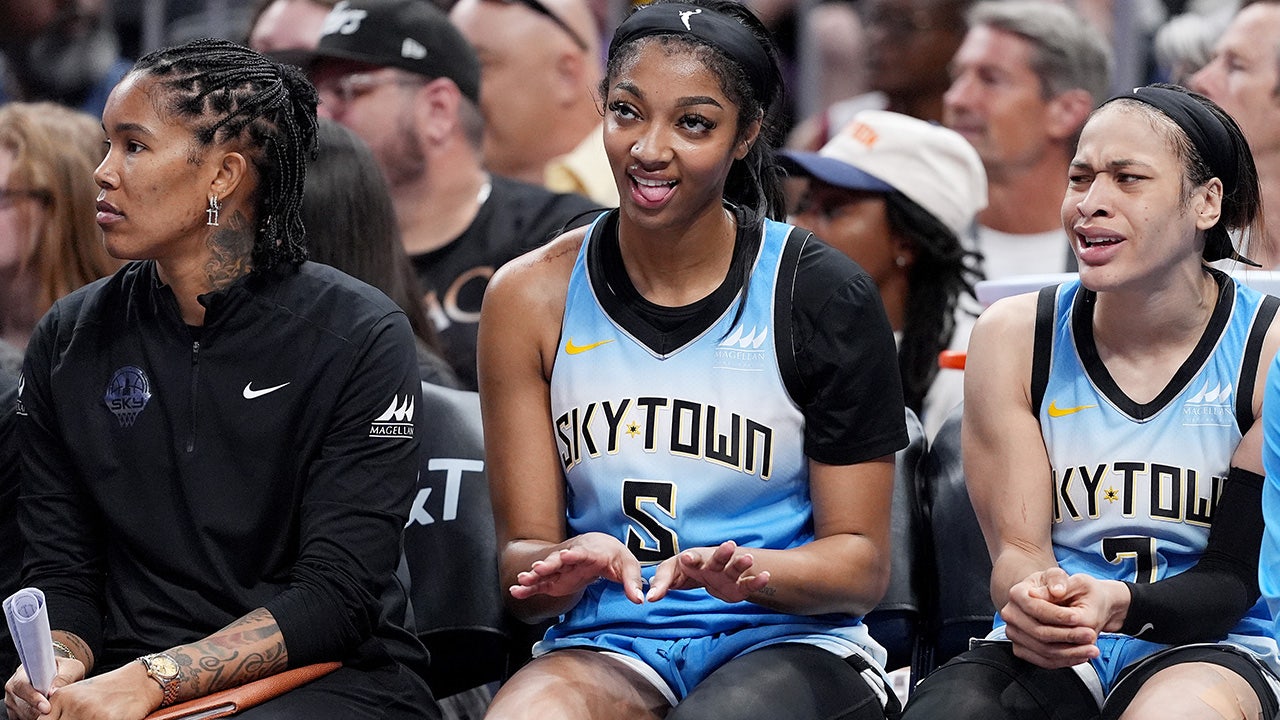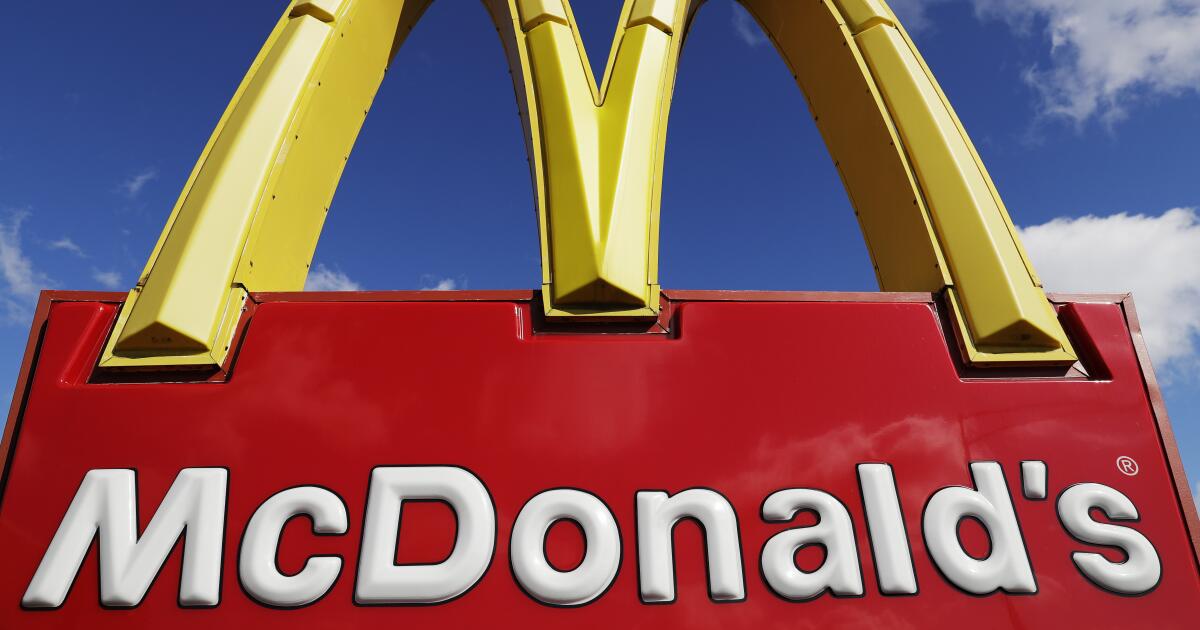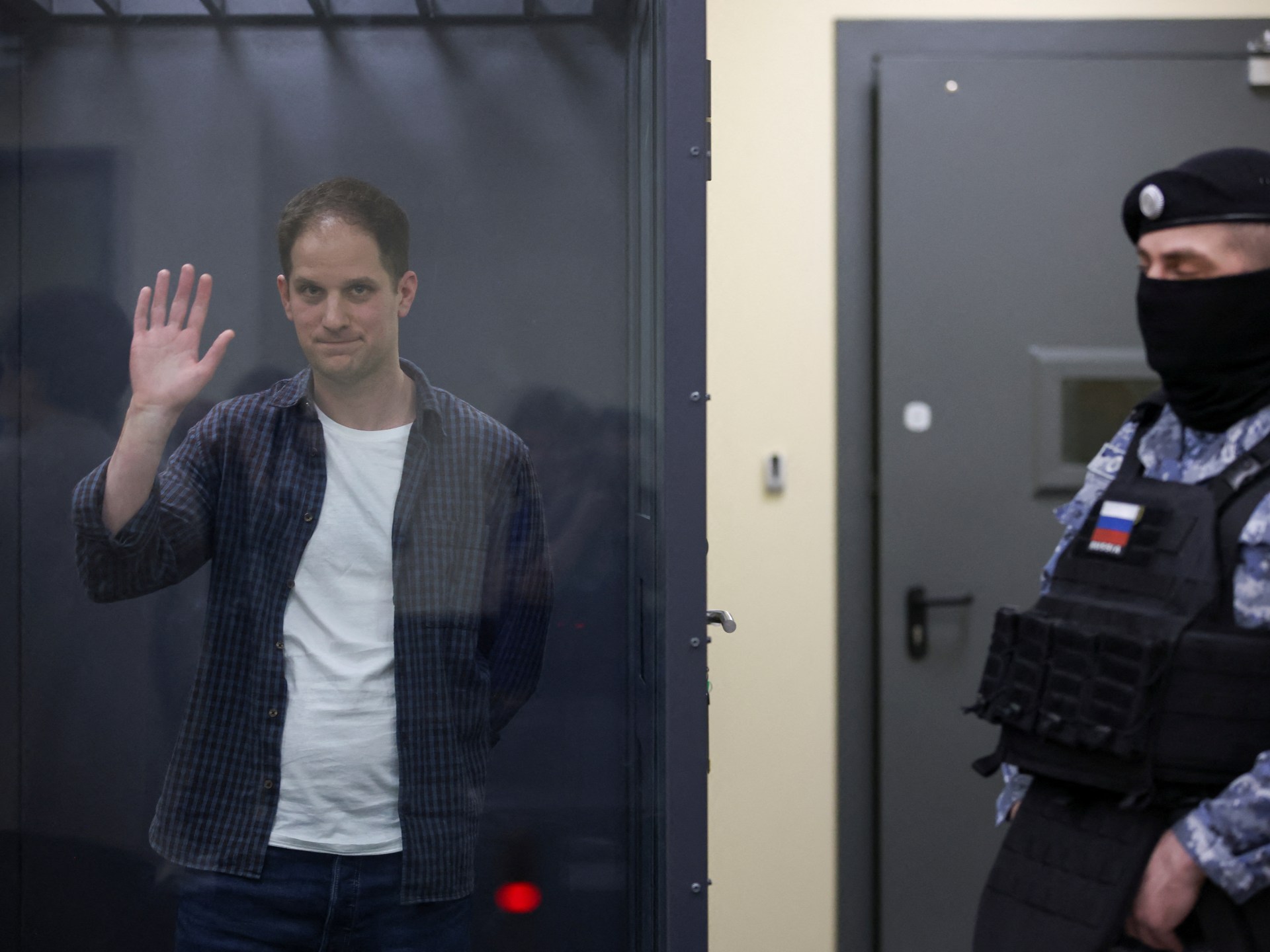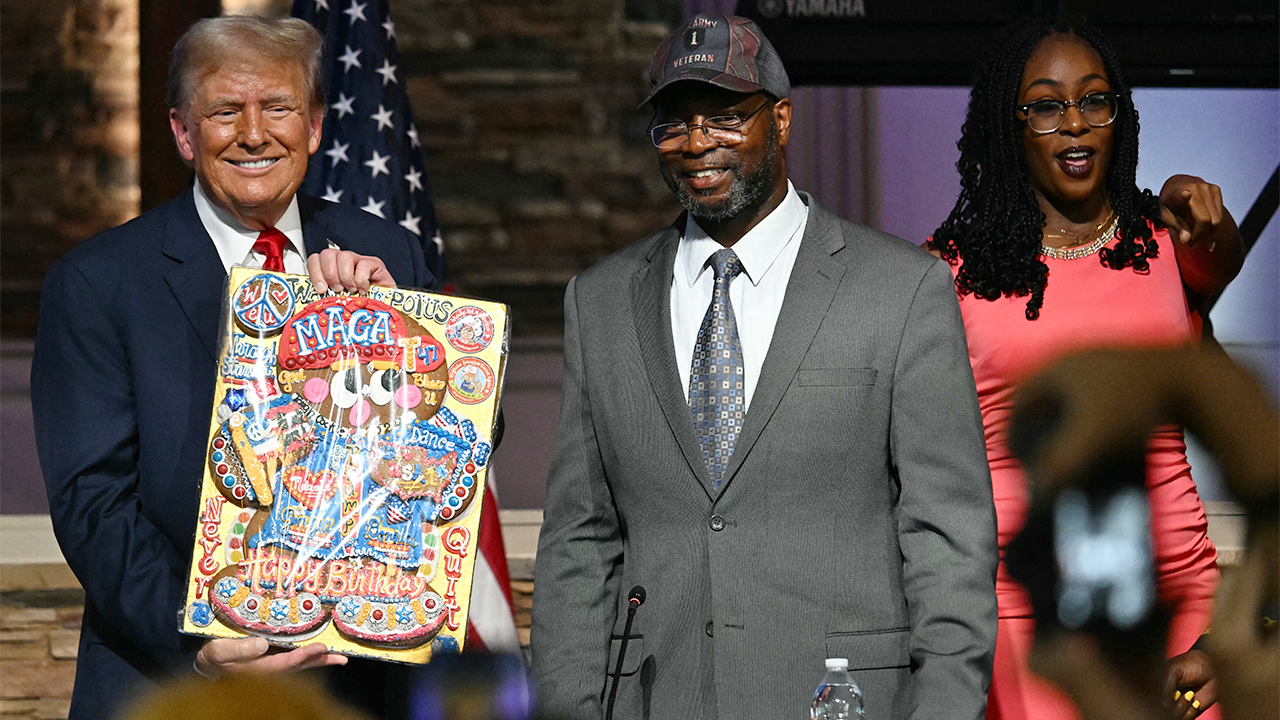Florida
Abortion Bounties, Penalties on Women: Florida Kingmaker's Candidate Questionnaire

The influential Florida Family Policy Council, a fixture in Tallahassee since its founding in 2004, likes to claim credit for such political triumphs as the state law banning gay marriage, defunding Planned Parenthood, and forcing the state board of education to teach students evolution is merely a theory, not a fact.
The group’s annual gala has become a pitstop for Republican candidates seeking the organization’s favor — then-Gov. Jeb Bush was the keynote speaker in 2006; in 2023, it’s where Gov. Ron DeSantis made his last big appearance before announcing he was running for president — and in a state where redistricting has made general election seats less and less competitive, an endorsement from the group’s advocacy and lobbying arm, Florida Family Action, can help crown the Republican candidate in the primary.
That group is gearing up to endorse a new slate of favorites for state House and Senate this year, and is asking candidates seeking its backing to fill out a 44-question questionnaire — paperwork that often functions as a litmus test to determine whether a candidate shares the endorsing group’s values.
Florida Family Action’s 2024 survey, obtained by Rolling Stone, offers a glimpse of the future the influential lobbying group would like to see in the state. (Florida Family Action did not respond to requests for comment about the candidate survey.)
In addition to collecting standard information about the educational candidate’s background, military service, and other credentials, the questionnaire asks political hopefuls about additional restrictions they might seek to implement on abortion, which is currently banned in Florida after 6 weeks. The group asks if there ought to be penalties for women who seek abortion, and whether abortion should to be banned at fertilization; floats the idea of implementing a Texas-style abortion bounty law in Florida, discusses defunding government programs that offer access to contraceptives and birth control; and questions candidates about regulating in vitro fertilization, or IVF.
There are also questions about whether the state should ban the use of bathrooms and other facilities by trans people, whether “gender identity” and “sexual orientation” should be added to the state’s non-discrimination statute, whether the state has a role in “prohibiting or regulating certain sexual behaviors,” and whether certain drugs should be decriminalized or legalized. (Amendment 3, which would legalize the recreational use of marijuana in Florida, is slated to appear on the ballot this November.)
Question 18 of the survey asks: “Should the law ever penalize any woman who has an abortion?” Candidates may select among the options: “Yes,” “No,” and “Unsure;” there is also a space for comments.
For decades, even the more extreme anti-abortion groups opposed criminalizing or otherwise punishing women seeking an abortion, focusing their attention on penalizing abortion providers instead. But that has seemed to change since 2016, when presidential candidate Donald Trump insisted “there has to be some form of punishment” for a woman seeking an abortion. Trump later backed away from the statement, but since the Supreme Court overturned Roe v. Wade, lawmakers in South Carolina and Alabama have considered imposing penalties — including the death penalty — on women seeking abortions.
Question 19 on the survey ponders the possibility of implementing an abortion bounty law in the state, much like S.B. 8, the Texas law that effectively shut down abortion access in the state nine months before Roe v. Wade was overturned. It allows individuals to sue, for monetary damages, anyone suspected of “aiding and abetting” an abortion. (The survey asks: “If state attorneys and law enforcement agencies in certain areas of Florida refuse to enforce state abortion laws against abortion providers, do you believe there should be a private enforcement mechanism, using lawsuits by private citizens and civil causes of action with monetary damages to enforce pro-life laws against abortion providers?”)
The questionnaire also asks, “Is it the proper role of government to fund contraceptives and forms of birth control?” and “Do you believe the state should regulate in vitro fertilization? Why or why not?” It also includes two questions about pornography — whether porn constitutes “protected speech under the first amendment and thus cannot be subjected to excessive governmental regulation,” and whether there ought to be fines levied or private lawsuits filed against “school districts that allow and use pornographic or sexually explicit materials in school instruction or in school libraries.”
In 2022, Florida Family Action threw its weight behind DeSantis, as well as Trump 2024 vice presidential shortlist contenders Sen. Marco Rubio and Rep. Byron Donalds, and 58 candidates for state House and Senate. This year, candidates likely to seek the group’s backing include Sen. Rick Scott and Rep. Anna Paulina Luna.
Read the full questionnaire:
1. What office are you running for (include district number)?
2. Please share your educational background, military service, and other credentials.
3. Who is your campaign manager and campaign consultant? Please include contact information.
4. What prompted you to run for elected office?
5. What are the top 3 priorities you would like to address if elected to office?
6. Which 3-5 current or former political leaders have influenced you the most?
7. Are you challenging an incumbent? If so, what motivated you to run against them?
8. Do you have a home church or place of worship? Please share the name and location and how long you have been attending.
9. How does your faith guide you? Does it influence you relating to legislation and public policy?
10. Do you believe the government should legislate morality? Please share why or why not.
11. What are the top three most complex problems the state government will face in the near future?
12. What is your view on the role of government in society?
13. How would you identify yourself politically? (Check all that apply. Add comment to define terms if desired.)
_ Libertarian _ Liberal _ Progressive _ Moderate _ Socialist _ Social Conservative _ Populist _ Fiscal Conservative _ Constitutionalist
14. Do you support AMENDMENT 4, enshrining abortion access as a constitutional right?
_ Yes _ No _ Undecided
15. When do you believe that human life begins?
_ Fertilization _ Heartbeat/6 weeks _ 12 weeks _ 15 weeks _ 24 weeks _ Birth
16. What is the earliest point that abortion should be limited by law?
_ Fertilization _ Heartbeat/6 weeks _ 12 weeks _ 15 weeks _ 24 weeks _ Birth _ Never
17. Based on your previous answer, what exceptions should be allowed under a general abortion ban? (Check all that apply.)
_ Rape _ Human Trafficking _ Fetal Disability _ Incest _ Mental health of the mother _ Threat to the mother’s life _ No Exceptions should be allowed
18. Should the law ever penalize any woman who has an abortion?
_ Yes _ No _ Unsure
Comments:
19. If state attorneys and law enforcement agencies in certain areas of Florida refuse to enforce state abortion laws against abortion providers, do you believe there should be a private enforcement mechanism, using lawsuits by private citizens and civil causes of action with monetary damages to enforce pro-life laws against abortion providers?
_ Yes _ No _ Unsure
Comments:
20. Is it the proper role of government to fund contraceptives and forms of birth control?
_ Yes _ No _ Unsure
Comments:
21. Do you believe the state should regulate in vitro fertilization? Why or why not?
22. Do you support the legalization of physician-assisted suicide/euthanasia in Florida?
_ Yes _ No _ Undecided
23. Do you support adding the categories ‘sexual orientation’ and ‘gender identity’ to our state’s non-discrimination statute?
24. Do you support AMENDMENT 3, enshrining recreational marijuana use and production in our state constitution?
25. Which of the following drugs do you support decriminalizing possession and legalize for recreational use in the state of Florida? (Check all that apply.)
_ Psychedelic magic mushrooms _ Marijuana _ Heroine (sic) _ Cocaine _ Methamphetamine _ None _ Other
26. Does the state have a role in prohibiting or regulating certain sexual behaviors? Please elaborate.
27. Do you support the legalization of prostitution in Florida?
_ Yes _ No _ Undecided
Comments:
28. During the previous session, the Florida state legislature increased the minimum age from 18 to 21 for working in an adult entertainment establishment. (i.e., strip clubs). Do you support this policy? (Please feel free to elaborate on how you want the government to regulate adult entertainment facilities.)
_ Yes _ No _ Undecided.
Comments:
29. What are the main causes of the expansion of human trafficking in our state? How should the legislature address this?
30. Do you believe pornography is protected speech under the first amendment and thus cannot be subjected to excessive governmental regulation?
_ Yes _ No _ Undecided
31. In the situation where any government (state or local) or government supported entity has violated the constitutional rights of a citizen, and where jailtime is not warranted as a punishment for the government official, do you believe there should be recourses against such agencies? How would you address this as an elected official?
_ Fines and penalties by the state, prosecuted by the Attorney General or state attorneys
_ Private cause of action, prosecuted by private attorneys seeking financial damages for the victims
32. Do you believe gambling should be allowed to expand in the state of Florida?
_ Yes _ No _ Undecided
Comments:
33. Would you support a law mandating that restrooms, locker rooms, changing rooms, spas, and other such facilities be sex-segregated for both privacy and public safety concerns? Why or why not?
_ Yes _ No _ Undecided
Comments:
34. Do you believe that parental rights (that is the right of the parents to direct the upbringing of their own children, including but not limited to religious instruction, education choice, and medical care) are fundamental rights that the government should not infringe upon?
_ Yes _ No _ Undecided
Comments:
35. Under what circumstances should the government have the right to limit a parent’s rights?
36. Do you believe that the case of a parent refusing to affirm and encourage the gender transition of their minor child should be counted as a case of abuse, abandonment, or neglect and potentially result in the removal of that child from the parents?
_ Yes _ No _ Undecided
Comments:
37. Should the state government have a role in regulating social media corporations? If yes, in what ways?
38. Do you support HB1, passed in 2023, that expands taxpayer-funded school choice scholarships allowing Florida parents to use the funds to send their child to the school of their choice, including charter schools, private schools, religious schools, and homeschooling? In what ways should the program be either deregulated and expanded or restricted and more heavily regulated?
39. Do you support adding additional penalties either in the form of state fines or private legal action by parents, for school districts that allow and use pornographic or sexually explicit materials in school instruction or in school libraries?
_ Yes _ No _ Undecided
40. Do you believe that Social Emotional Learning (SEL) should be encouraged and used in Florida’s public schools?
_ Yes _ No _ Undecided
Comments:
41. Regarding vaccine or mask mandates in private corporations and businesses, which of the following best represents your position?
_ Such mandates in private businesses should be regulated or prohibited by the state.
_ Such mandates in private business are completely up to the company leadership.
Comments:
42. Are there any accusations, true or false, against you which could be an election issue that you would want us to be aware of?
43. In comparison to the other candidates in your primary, what distinguishes you from the other candidates?
44. Feel free to provide any other information that you would like to share.

Florida
A new airport could spark the economy in a rural part of Florida. Will the workforce be ready?

LaBELLE, Fla. — One of Florida’s poorest counties is preparing for the new “Airglades” airport, a $300 million cargo hub that could transform its economy.
Local leaders see the project as a generational opportunity, one that could bring more than 1,400 new, high-skilled jobs to their largely agricultural community at the edge of the Everglades. But to make good on its promise, the region’s educators will have to overcome some harsh realities.
A third of Hendry County’s working-age adults lack a high-school diploma, while almost half speak a language other than English at home, among the highest in Florida. Before local leaders can prepare residents for jobs in engineering and manufacturing, educators must first help them earn their GEDs and learn English.
“We have some of God’s most beautiful country that has never been touched by man,” said Michael Swindle, the county schools superintendent, and yet “by all the metrics you would judge a county on, we’re either No. 1 or No. 2 in the ugly categories.”
As the airport project pursues approval, community groups and schools are working to fill teacher shortages and make investments in adult education.
The challenges also include some political headwinds. Most of the county’s workforce is Black and Latino. Efforts to tailor education to serve those demographic groups have drawn scrutiny in Florida, where politicians have forbidden programs factoring race and national origin into people’s treatment. Educators say the political context adds to the difficulties in recruiting teachers.
The plan to convert the small, county-owned airport to private ownership still has to win approval from the Federal Aviation Administration, which will depend partly on solidifying contracts with vendors in Latin America to prove its potential as a hub for perishable goods.
Meanwhile, two adult education centers in the county expanded with support from the FutureMakers Coalition, a community organization that has spearheaded education retraining efforts across southwest Florida. It also is paying for a counselor to help adults looking to develop new skills and change careers.
Spanish-speaking students have filled the adult education center in LaBelle, the 5,000-person county seat.
Many are working jobs or have kids at home, which has forced their instructor, Silvia Gullett, to get creative to meet their needs. She started a WhatsApp group so students could organize carpooling or split childcare duties. If students don’t show up to class, Gullett texts them to figure out the problem. She doesn’t settle for easy excuses.
“In the beginning, I had some students who didn’t want to continue. I try to tell people that the only one who can stop them is themselves,” said Gullett, who was born in Peru before starting her teaching career in Florida two decades ago.
At the country’s other adult education center, in Clewiston, sparks fly as dozens of students in thick gloves and respirator masks work toward industrial certifications needed to enter the workforce. One of them, Samantha Garza, 21, initially studied child care at a community college in Fort Myers but pivoted after watching YouTube videos about female welders.
“I’m an artsy person, so I have more of a steady hand already, and I love to be down and dirty doing physical things, so I felt like this would be a career for me,” she said.
Even before the airport arrives, there are still plenty of local employers waiting to hire the students. As current employees near retirement age, U.S. Sugar, the Clewiston-based farming giant, has such urgent needs it started an in-house welding program.
“We’re trying to close that generation gap between mechanics and welders,” said Nathan Hollis, an industrial skills trainer at the company.
Finding enough instructors to offer the training has been a challenge. Swindle had to recruit a U.S. Sugar worker to teach welding and coax a school bus mechanic out of retirement to lead the diesel mechanics program.
Still, the program has been so successful the county is using tuition revenue and donations to open another training facility in LaBelle focused on HVAC and plumbing.
There has been controversy around some efforts, including a slide on the topic of “white privilege” shown during a teacher training event led by FutureMakers. It sparked an outcry from conservative activists who accused organizers of racism, and a Republican city commissioner in LaBelle suggested it violated the “ Stop WOKE Act ” signed into law by Gov. Ron DeSantis, a Republican.
The political climate in Florida has made it difficult to attract K-12 teachers, according to Swindle. In a state where DeSantis has harnessed culture war passions in his education policies, Swindle said many of his teachers feel unsupported.
“The rhetoric around public education is horrible. It absolutely does hurt us,” Swindle said.
Teacher shortages threaten local schools’ ability to teach not just welders and mechanics, but also construction workers, nurses and other professionals to support the influx of people the airport could bring.
“We don’t have a chemistry or physics teacher in high school. We’ve left the job openings up for three years, and we can’t even get someone to apply,” Swindle said.
The county has been running more marketing campaigns to recruit educators and paying paraprofessionals to secure licenses so they can become teachers with help from a $23 million Good Jobs Challenge grant from the U.S. Department of Commerce.
There is a lot at stake for Swindle’s long-time home.
The superintendent knows where the alligators lie, sunbathing along the acres of canals that irrigate fields of sugarcane. He knows which sabal palms make the best swamp cabbage, teaching his sons how to cut palm hearts out with his knife, like their ancestors did to survive leaner times.
Yet there is no way to know if all his retraining efforts will be successful. The airport still might not come, especially if the county can’t prove it will have the workers ready to support it.
For now, officials are trying to fill current workforce needs while test-driving their ability to spin up new training programs. Once construction begins on the airport, they know they will have about two years to teach a wave of logistics operators, agricultural customs inspectors and other aviation-specific professionals.
“We’re not just talking about an airport,” Swindle said. “We’re looking at this as an opportunity to move the needle on unemployment, on poverty, to a better place.”
___
Nick Fouriezos covers the role of college in rural America for Open Campus, a nonprofit newsroom focused on higher education. Sign up for his newsletter, Mile Markers.
___
The Associated Press’ education coverage receives financial support from multiple private foundations. AP is solely responsible for all content. Find AP’s standards for working with philanthropies, a list of supporters and funded coverage areas at AP.org.
Florida
Florida State drops Virginia to stay alive at College World Series

No. 8 national seed Florida State will remain in Omaha, Nebraska, after defeating Virginia 7-3 in an elimination game at the 2024 College World Series on Sunday afternoon.
The Seminoles advance to face the loser of the Tennessee-North Carolina game on Tuesday, June 18 at 2 p.m. at Charles Schwab Stadium.
FSU starting pitcher Carson Dorsey was superb on the mound against Virginia, pitching into the eighth inning. He scattered nine hits and finished with seven strikeouts on 106 pitches.
Jaime Ferrer sparked the Seminoles crowd with two home runs and four RBI. Ferrer’s three-run homer in the fifth inning was part of a four-run inning that opened the game up for FSU at 6-0. Alex Lodise’s leadoff homer to start the sixth pushed FSU’s advantage to 7-0.
Virginia, which outhit FSU 10-7, became the first team bounced from the eight-team, double-elimination tournament. The Cavaliers put together a rally in the seventh inning after back-to-back singles by Ethan Anderson and Anthony Stephan. After two strikeouts, Henry Godbout and Casey Saucke had back-to-back RBI singles to cut Virginia’s deficit to 7-2 before Henry Ford struck out.
Virginia starting pitcher starter Jay Woolfolk tweaked his right knee after allowing Ferrer’s first homer, a solo shot in the fourth inning. Joe Savino came in to relieve Woolfolk a few batters later.
Peter Holland Jr. covers Florida State athletics for the Tallahassee Democrat. He can be contacted by email at PHolland@Gannett.com or on X @_Da_pistol.
Florida
Florida Panthers, with help from NHL, push to grow hockey in Latino communities

The spark in Leo Jungerman’s eyes when he watched his first hockey game was different.
He’d tried other sports like soccer and tennis, his father Alex said. But a hockey game featuring the Toronto Marlies — the Toronto Maple Leafs’ minor league team — is where an 8-year-old Leo’s love truly began for the sport.
“When we were watching the game, I spent a big chunk of the time looking at him,” Alex Jungerman said, “and it was kind of fascinating. So when he expressed interest in trying the game, I jumped right in.”
Alex, who had moved his family from Brazil to Florida that year in 2015, started looking for youth hockey programs for Leo, who knew nothing about hockey and couldn’t even skate.
That’s when he came across the Florida Panthers Learn to Play initiative — a program designed to introduce boys and girls to hockey while reducing barriers to entry for the sport. It’s part of the Panthers’ overall effort to grow the game in untapped communities, particularly the rapidly growing Hispanic market.
Almost 30% of Floridians are Latino, according to the U.S. Census Bureau, higher than the national average of about 19%. There are more than 500,000 Hispanic residents in Broward County, Florida, where the Panthers’ Amerant Bank Arena is located. That number increases to more than 1.7 million in neighboring Miami-Dade, Florida’s most populous county.
“The demographic makeup in Florida certainly expresses an interest that it’s extremely important to connect to the Latino community,” said Rob Knesaurek, the NHL’s senior vice president of community development and industry growth. “They’re deeply rooted in sports. Why wouldn’t they pick our sport?”
Knesaurek added the NHL is more intentional in popularizing the sport in Latino communities, where the league hasn’t been traditionally proactive. That started with league-wide efforts to connect with Hispanic fans as well as those in underserved communities, and it trickles down to grassroots initiatives by individual teams.
The NHL and NHL Player’s Association’s industry growth fund has spent more than $180 million over the past decade on programs that bring hockey to communities across North America. It focuses largely on combating the barriers of access and cost.
Through the fund, many clubs can offer a fixed, affordable amount for equipment and lessons — some offer them for free — and coaches who speak both Spanish and English.
Alex Jungerman estimated he spent around $300 for the Panthers’ Learn to Play program. Leo got full equipment, including skates and six lessons, to start his hockey journey.
Instructors could translate hockey lingo to the Jungermans. Leo said the Panthers made him feel welcomed, especially in moments when learning hockey felt scary.
“There were several times I wanted to quit, especially because of the skating,” Leo said, “like you’re balancing your whole body weight on two little edges. It’s hard to learn.”
He stuck with it. Now at 16, he’s on Florida’s Junior Panthers travel hockey team.
“Leo’s just a perfect example of a family that could have easily walked away from this if they didn’t feel welcomed or part of this,” said John Colombo, the Panthers’ vice president of community relations. “And I think that’s important. I think too often hockey culture gets that reputation of being very exclusive.”
Overall, the NHL said over $4 million in industry growth fund grants have been given to support the Panthers’ initiatives to grow the game.
The team’s floorball PE program has reached over 300,000 students across 450 schools in Florida — introducing kids to the sport and the Panthers’ brand with the goal of creating lifelong fans.
The Panthers during the season hold a “¡Vamos Gatos!” night, which celebrates South Florida’s Hispanic and Latino community. They’ve hosted the LATAM Cup — a three-day tournament featuring Latin American and Caribbean countries — since its inception in 2018. And they’ve also expanded into the entertainment arena, inviting more Hispanic and Latino artists to perform at Amerant Bank Arena. The arena hosted the Latin Billboard Music Awards in 2020 and Latin American Music Awards in 2021.
“(We) are not looking for the next NHLer,” Knesaurek said. “What we are looking for is to build good, healthy, vibrant communities through good citizens.”
The Panthers recent success on the ice has certainly helped with their popularity. Florida has a 3-1 lead over the Edmonton Oilers in the Stanley Cup Final, which the Panthers are competing in for the second straight year.
“The popularity of the sport and how the team has progressed over the last three or four years, I think you’re going to see an uptick,” said Bryan Smolinski, a former NHL player and regional director with the league’s industry growth fund.
Hispanic and Latino participation in Florida’s Learn to Play program increased 15% from 2023 to 2024.
Leo Jungerman was featured on the team’s first Learn to Play poster from 2015. The Jungermans have that poster displayed at the entrance of their home as a reminder of how far he’s come.
“We make sure that everyone that comes to the house for the first time, we stop them from in front of the poster. We explain the story,” Alex Jungerman said. “We are really proud.”
___
AP NHL playoffs: https://apnews.com/hub/stanley-cup and https://www.apnews.com/hub/NHL
-

 Politics1 week ago
Politics1 week agoNewson, Dem leaders try to negotiate Prop 47 reform off California ballots, as GOP wants to let voters decide
-

 News1 week ago
News1 week agoWould President Biden’s asylum restrictions work? It’s a short-term fix, analysts say
-

 World1 week ago
World1 week agoDozens killed near Sudan’s capital as UN warns of soaring displacement
-

 News1 week ago
News1 week agoRead Justice Clarence Thomas’s Financial Disclosures for 2023
-

 World1 week ago
World1 week ago‘Bloody policies’: Bodies of 11 refugees and migrants recovered off Libya
-

 Politics1 week ago
Politics1 week agoGun group vows to 'defend' Trump's concealed carry license after conviction
-

 Politics1 week ago
Politics1 week agoShould Trump have confidence in his lawyers? Legal experts weigh in
-
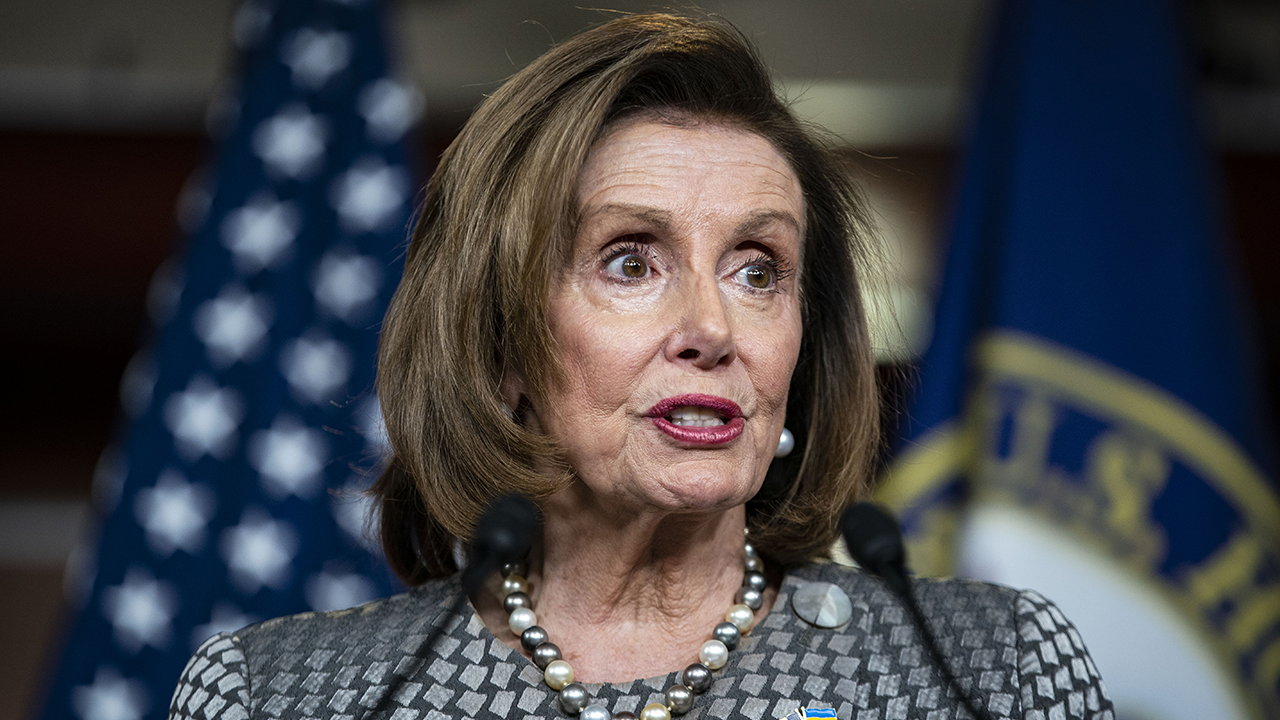
 Politics6 days ago
Politics6 days agoGOP releases Jan. 6 clip of Pelosi saying 'I take responsibility' as she discussed National Guard absence


